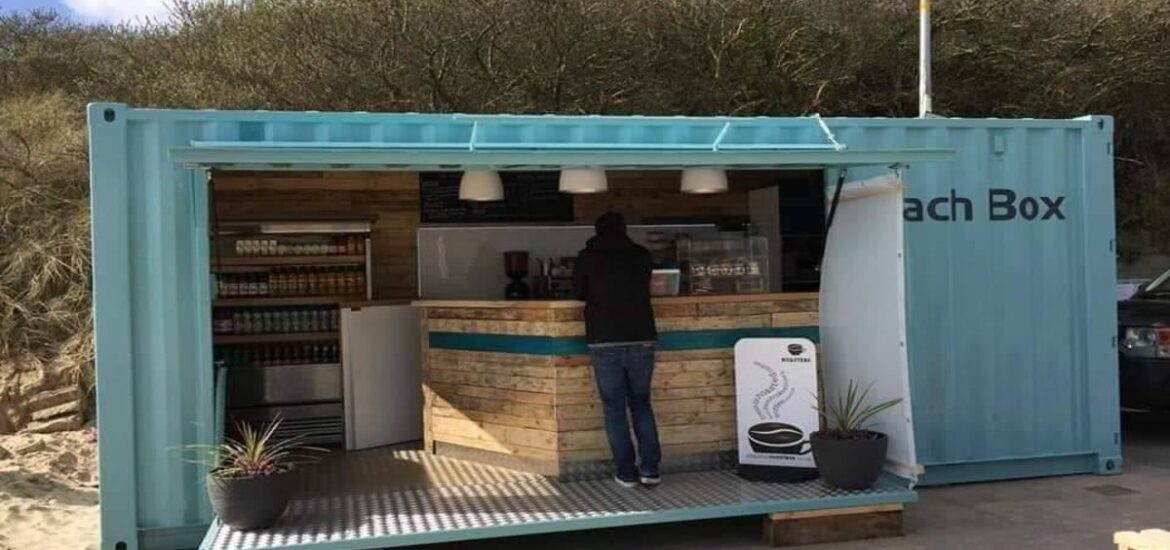Setting Up Portable Container Shops in East Africa: A Business Opportunity
In a region bustling with creativity and entrepreneurial spirit, East Africa has become a hotbed for innovative and cost-effective business ideas. One trend that’s been steadily gaining ground is the use of portable container shops—transforming old shipping containers into vibrant, mobile, and functional retail spaces.
Whether you’re in Nairobi, Kampala, Dar es Salaam, or Kigali, container shops are turning heads—and profits. From urban pop-up cafés to remote village kiosks, these steel giants offer a compelling business opportunity for anyone looking to start or expand a venture without breaking the bank.
In this comprehensive guide, we’ll dive deep into:
- Why container shops are booming in East Africa
- Step-by-step process of setting one up
- Real-life examples
- Financial tips and projections
- Marketing ideas
- And more!
📸 [Insert Image: A row of vibrant container shops in Nairobi, Kenya]
Why Portable Container Shops Are Gaining Popularity in East Africa
Let’s start with the why.
1. Affordability
Traditional brick-and-mortar shops can cost millions of shillings. Portable container shops, on the other hand, offer an affordable setup, sometimes for as little as Ksh 200,000 ($1,500).
2. Mobility
Need to change location? You can move your shop with a flatbed truck—no long leases, no demolitions.
3. Durability
Shipping containers are made of Corten steel, built to survive harsh weather and ocean voyages. That makes them perfect for East Africa’s varied climate.
4. Quick Setup
Instead of waiting months for permits and construction, you can be up and running in just weeks.
5. Eco-Friendly
Recycling old containers means you’re reducing environmental waste—a win for you and the planet.
📸 [Insert Image: Before and after photo of a refurbished shipping container shop]
Step-by-Step Guide to Setting Up a Portable Container Shop in East Africa
Let’s walk through the process of turning a rugged container into a fully functional, money-making shop.
Step 1: Identify Your Business Niche
Start by asking: What do I want to sell?
- Clothing boutique?
- Fast food kiosk?
- Mini supermarket?
- Electronics and accessories?
- Barber shop or beauty salon?
- Mobile money agent or M-Pesa kiosk?
Tip: Choose a product or service in high demand in your target location. Conduct basic market research or observe foot traffic in potential areas.
Step 2: Choose the Right Container
Common Sizes:
- 10ft container: Best for small kiosks or stalls.
- 20ft container: Most popular size—ideal for general shops, salons, or cafés.
- 40ft container: For larger businesses or if you want to divide the space.
Condition:
- As-Is: Cheaper but may need repairs.
- Refurbished: Costs more but usually move-in ready.
Where to buy: Look for suppliers in major cities like Nairobi, Mombasa, Kampala, and Dar es Salaam. Many also offer delivery and customization services.
📸 [Insert Image: Interior view of a converted 20ft container shop with shelves and lighting]
Step 3: Design Your Shop Layout
You’ll want to think about:
- Customer flow: How will people move inside the shop?
- Ventilation: Add windows or vents to combat heat.
- Security: Reinforce doors and install secure locks.
- Branding: Paint the exterior with your colors and logo.
- Shelving and counters: Efficient use of space is key.
Pro Tip: Hire a local container fabrication company—they understand local needs and materials, and it supports the local economy.
Step 4: Acquire Necessary Permits
Depending on your country or county, you may need:
- Business license
- Health & safety permits (especially for food businesses)
- Location approval from county government or landlord
Don’t skip this step—it saves you from future headaches and fines.
Step 5: Choose a Strategic Location
Your location can make or break your business.
Consider:
- High foot traffic areas: near markets, bus stations, universities, hospitals
- Upcoming residential areas: less competition, more demand
- Roadside visibility
- Access to utilities (water, electricity)
Bonus: Because your shop is portable, you can test locations before settling permanently.
📸 [Insert Image: Container coffee shop set up near a university campus]
Step 6: Connect Utilities
- Electricity: Install wiring, sockets, lights, and backup options like solar.
- Water supply: For food businesses or salons, you’ll need clean water storage or plumbing.
- Internet: For mobile payments, POS systems, or customer Wi-Fi.
These may be small additions but they elevate your customer experience significantly.
Step 7: Launch and Market Your Shop
You’re ready to open! Now let the world know.
Ideas to create buzz:
- Social media: Post before & after photos on Facebook, Instagram, TikTok
- Offer grand opening discounts
- Use word-of-mouth: Tell friends, family, local leaders
- Collaborate with local influencers
- Register on Google Maps and local directories
📸 [Insert Image: Happy customers at the grand opening of a container fast-food joint]
Real-Life Success Stories in East Africa
1. The Box Café – Nairobi
Started in a refurbished 20ft container in Kilimani. Now expanded to 3 locations. Known for cozy vibes and fast Wi-Fi.
2. SmartCom Tech – Kampala
An electronics shop operating from a 40ft container. Offers laptops, phones, and repair services. Low rent = higher margins.
3. Mama Zawadi – Mombasa
Runs a fashion and accessories boutique in a converted shipping container along the beach. Attracts tourists and locals alike.
These are not just businesses—they’re community landmarks.
How Much Does It Cost to Set Up a Container Shop in East Africa?
Here’s a rough breakdown:
| Item | Estimated Cost (USD) |
|---|---|
| Used 20ft Container (As-Is) | |
| Refurbishing and Fabrication | |
| Transportation and Offloading | |
| Permits and Licenses | |
| Shelving, Branding, Signage | |
| Utilities (Wiring, Water, Solar) | |
| Total Setup Cost |
You can recover this investment in 6–12 months, depending on your business model and location.
Advantages of Container Shops vs. Traditional Shops
| Feature | Container Shop | Traditional Shop |
|---|---|---|
| Setup Time | 1–4 weeks | 3–6 months |
| Cost | ||
| Portability | ✅ Yes | ❌ No |
| Customization | High | Limited |
| Maintenance | Low | Medium to High |
| Flexibility | Very Flexible | Rigid |
📸 [Insert Image: Comparison table of container vs. traditional retail shops]
Common Mistakes to Avoid
- Buying a cheap but heavily damaged container
- Choosing a poor location with low foot traffic
- Skipping permits and getting shut down
- Not insulating or ventilating the container
- Over-customizing and inflating startup costs
Avoid these, and you’re on your way to building a solid, long-term business.
Creative Ideas for Container-Based Businesses
- Beauty spa or nail bar
- Internet café or printing shop
- Small library or reading space
- Pharmacy or clinic
- Ice cream or juice bar
- Mini bookstore
With the right idea and execution, your container shop could be the next big thing.
How to Market and Scale
- Register online – Get listed on Google Maps, Bing, Facebook Business
- Loyalty programs – Encourage repeat customers with points or discounts
- Partnerships – Collaborate with delivery apps or nearby events
- Franchise Model – Clone your business across towns
- Online Storefront – Pair your container shop with an eCommerce website
📸 [Insert Image: Entrepreneur showing daily sales using a POS system in their container shop]
Final Thoughts: A Golden Opportunity for East African Entrepreneurs
Portable container shops are redefining retail in East Africa. They blend cost-efficiency, flexibility, and innovation into a business model that works for both urban and rural areas.
Whether you’re a seasoned entrepreneur or a young dreamer looking to make your mark, a container shop could be your gateway to independence and success.
All you need is the right idea, a bit of capital, and bold execution.
✅ Need Help Getting Started?
If you’re looking for reliable container suppliers, designers, or fabricators in Nairobi, Mombasa, Kampala, or anywhere in East Africa—reach out! We can connect you with vetted professionals to get your business rolling.

